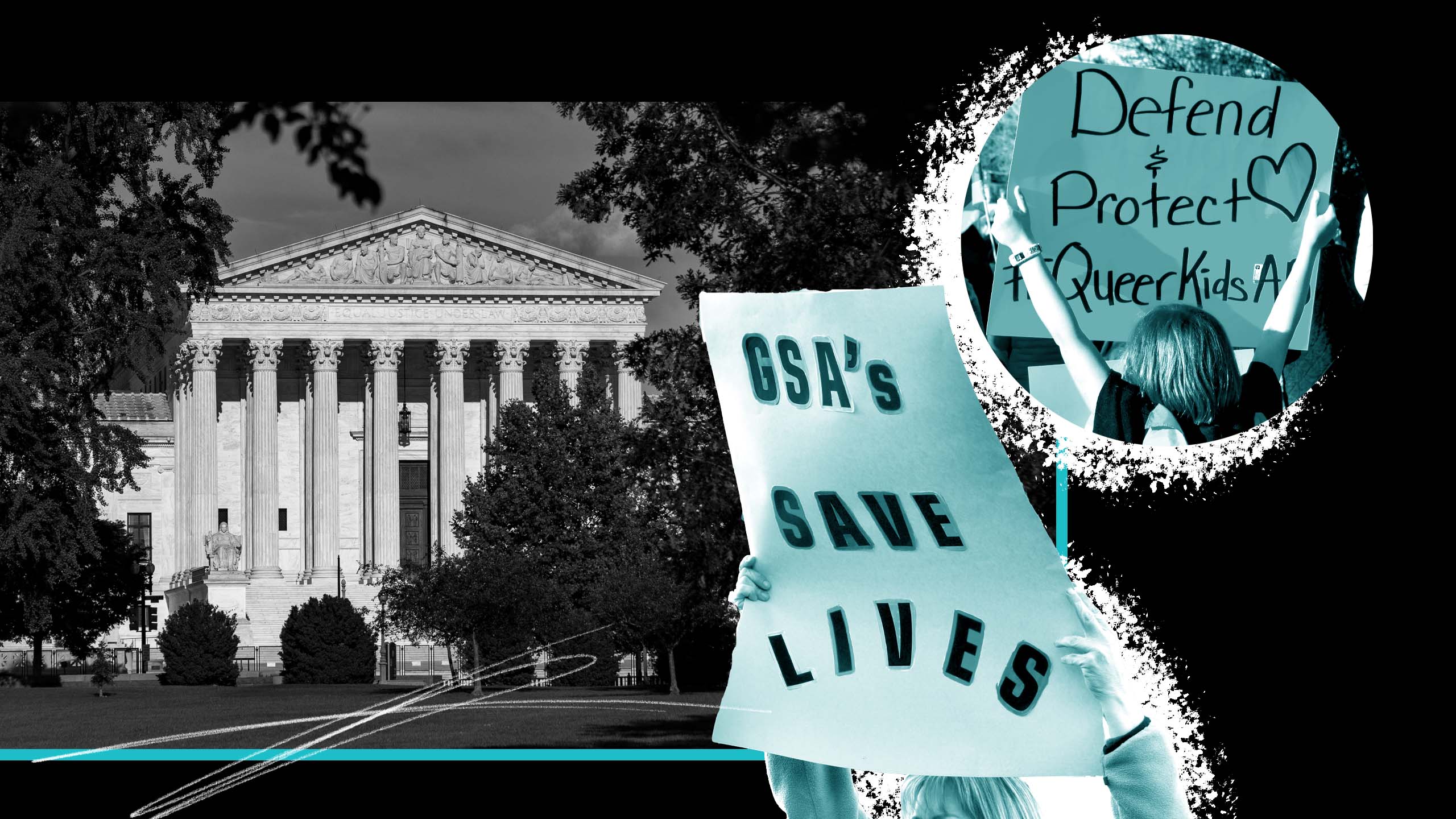An upcoming case that could end up on the U.S. Supreme Court’s shadow docket foreshadows a potential new legal battle: the battle for queer student clubs and GSAs.
In an emergency request sent directly to the nation’s highest court this week, Yeshiva University—an Orthodox Jewish university in New York—asked the court to overturn an order from a New York state court demanding the university recognize an LGBTQ2S+ group as an official campus club. The previous ruling, from the New York County Supreme Court, found that the university—which does not define itself as a religious institution in its charter—was violating the students’ First Amendment rights by not recognizing the club.
“As a deeply religious Jewish university, Yeshiva cannot comply with that order because doing so would violate its sincere religious beliefs about how to form its undergraduate students in Torah values,” the court request reads. (Most Orthodox interpretations of Jewish law forbid same-sex marriage and behaviour.)
The suit was initially filed last year by the YU Pride Alliance. In its complaint, the group alleged that the university’s decision to deny funding and official recognition—which rendered the group unable to use school buildings for events or advertise to fellow students—amounted to discrimination.
“The students are asking for funding for events like movie nights and pizza,” Rachael Fried, a Yeshiva University graduate and the executive director of Jewish Queer Youth, which funds and mentors the club, told the Jewish Telegraphic Agency. “The university is inferring that these students are asking to have sex instead of listening to what they are actually asking for, a safe space where they can form friendships and community.”
The Supreme Court has yet to announce whether it will take up the case. While the emergency request only asks that the court block the order to immediately implement the club until the next appeal is heard, experts noted that this type of approach is unusual and indicative of the current legal climate—influenced by a court that is notoriously sympathetic to so-called “religious freedom” claims. In an August 29 tweet, University of Texas School of Law professor Stephen Vladeck said the case is a sign of “how much the shadow docket has evolved.”
“Whatever one thinks of the First Amendment issues here, this kind of dispute would *never* have made it to #SCOTUS through an emergency application as recently as six years ago,” he added. “Now, it’s almost a matter of course.”
The shadow docket is a much shorter decision-making process compared to the more widely understood “merits docket,” which handles most of the court’s most famous cases—in contrast, the shadow docket has no publicized hearings or broadcasted oral arguments. While it was at one time used primarily for procedural matters like issuing emergency orders like the one Yeshiva University is requesting, the conservative-leaning court has in recent years used the shadow docket to take up hot-button topics. Perhaps the most notable recent ruling issued through these means was the court’s decision not to block Texas’s six-week abortion ban, which many saw as a precursor to its decision to overturn Roe v. Wade.
This past week, a California court delivered a decision that could be a harbinger of things to come—ruling that a San Jose school district must recognize a Christian club that had excluded LGBTQ2S+ students. The verdict, which came from the Ninth U.S. Circuit Court of Appeals, orders that the club must be reinstated while litigation continues in the lower courts.
While there is a long history of institutions trying and failing to block GSAs, the Supreme Court’s increasingly pro-Christian bias could mean more cases challenging queer student clubs. Last year, the court ruled that the city of Philadelphia had violated the First Amendment by refusing to contract with a religious foster care agency that had refused to place foster children with same-sex couples. And in its upcoming October term, the court will consider a free speech claim from a Colorado wedding website designer who refuses to create websites for same-sex couples on faith-based grounds.
It’s unclear how the Supreme Court will rule in these cases. In October 2020, the court denied an appeal by Kim Davis, a Kentucky clerk who alleges she was wrongfully persecuted for refusing to issue a marriage licence to a gay couple in 2015. But in an opinion accompanying the denial, conservative justices Clarence Thomas and Samuel Alito stated that the court’s decision to legalize marriage equality in 2015’s Obergefell v. Hodges had resulted in “ruinous consequences” for religious liberty. The judges strongly implied their desire to overturn or at least gut the landmark LGBTQ2S+ rights ruling, if the right case were to come before the bench.
Update: September 13, 2022 9:45 amOn September 9, the Supreme Court issued a response to Yeshiva University’s petition. In the brief order, Justice Sonia Sotomayor lifted the lower court’s injunction, allowing the school to continue to not recognize the student club pending a further order from the Court.
Update: September 15, 2022 12:35 pmThe Supreme Court moved in a 5-4 vote released September 14 to deny Yeshiva University’s emergency request for relief, determining that the university must comply with the state court’s order and recognize the LGBTQ2S+ club. In the unsigned opinion, Chief Justice John Roberts and the conservative Justice Brett Kavanaugh joined with liberals Sonia Sotomayor, Elena Kagan and Ketanji Jackson, saying that it was too soon for the Court to become involved in the case and that the school must pursue other avenues for “expedited or interim state court relief” before it can come before the Court.


 Why you can trust Xtra
Why you can trust Xtra


